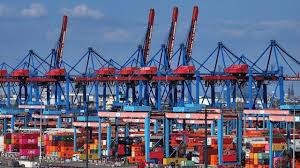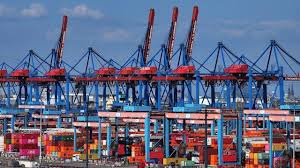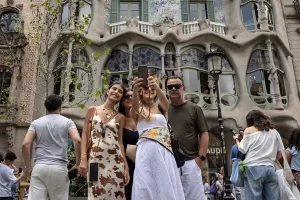How Italy is preparing for a Covid-19 vaccine
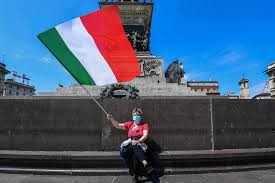
Rome: Which vaccine is Italy pinning its hopes on, and who’ll get the first shots? Here’s what we know so far about Italy’s coronavirus vaccination strategy.
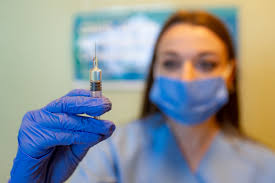
With scientists around the world racing to develop a vaccine hopes are high that protection against Covid-19 might finally be in sight.
Several potential vaccines have shown promising results in clinical trials, including one about to be tested in Italy on hundreds of volunteers.
The Italian government has appointed a task force to plan how and where the first doses will be delivered when international regulators approve a successful vaccine.
The plan remains a draft for now, but here’s what we know so far about how Italy’s vaccine strategy will work.
Italy is not betting on a single vaccine. The government will invest in different options in order to make “larger numbers of vaccines available”, according to Franco Locatelli, head of the Health Ministry’s expert advisory panel.
That means that different vaccines will become available as and when they get regulatory approval.
Italy was one of the first countries to sign up to an EU pact to reserve doses of the most promising vaccine candidates before they come on the market.
Along with its partners, it has already secured at least 300 million doses of the experimental vaccine developed by Oxford University and AstraZeneca, up to 300 million doses of an alternative being trialled by Sanofi and GlaxoSmithKline, at least 225 million doses of a CureVac candidate, at least 200 million doses of the vaccine developed by BioNTech and Pfizer, and at least 200 million doses of a version made by a Johnson & Johnson subsidiary. The bloc is also in talks with Moderna about a potential deal for an initial 80 million doses.
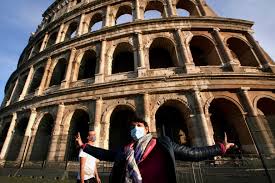
Italy has its own potential vaccine to offer, developed near Rome by Italian biotech company ReiThera, but it remains in the early stages of human testing and is not yet being considered for approval.
Domenico Arcuri, Italy’s coronavirus emergency commissioner and the person tasked with planning its vaccination operations, has said he is working on the assumption that the vaccine most likely to become available first is the BioNTech-Pfizer candidate.
That all depends on when regulators judge that a vaccine has proven safe and effective for public use.
Within the EU the decision lies with the European Medicines Agency, which has promised to fast-track the approval procedure for coronavirus vaccines. It is already reviewing preliminary results for three potential vaccines – the ones developed by Oxford-AstraZeneca, BioNTech-Pfizer, and Moderna – in order to get a head start by the time they submit a formal approval request.
In the best-case scenario, those requests would come “towards the end of 2020” and be followed by a full scientific evaluation, the EMA says – which makes it doubtful that any vaccine will be on the market by the end of this year. But Arcuri is optimistic that things will move quickly in 2021.
“We’re confident that we’ll be able to vaccinate the first Italians at the end of January,” he told the press last week.
According to Italy’s supply agreement with its EU partners, the doses they’ve reserved will be shared in proportion to each country’s population – so Italy will get 13.5 percent, the third-largest share after Germany (18.6 percent) and France (15.0 percent). It will also have the opportunity to claim extra doses if other member states turn them down.
That entitles Italy to around 165 million at least of all the doses secured by the EU so far, for its population of 60.2 million people.
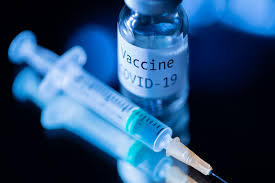
But not all of those vaccines will be ready at the same time, nor will suppliers be ready to deliver all the doses at once.
What’s more, since most vaccines are expected to require multiple shots to offer maximum protection against the coronavirus, the number of people vaccinated will be less than the number of doses. The 27.2 million doses of the BioNTech-Pfizer vaccine that Italy could get next year, for example, would be enough to vaccinate 13.6 million people once they’ve each received two doses a few weeks apart.
The supply of coronavirus vaccines is set to be very limited at first until several are approved and production ramps up.
According to Arcuri, the government expects its first round of vaccinations to deliver 3.4 million shots to 1.7 million people.
Italy will invite people in high-risk categories to get vaccinated first, based on their “vulnerability and potential exposure to the virus”, Arcuri says.
The elderly, people with certain pre-existing conditions, healthcare workers and nursing home staff and residents are expected to be among the first recipients.
The Italian government has decided to coordinate its vaccination plan nationally instead of leaving it up to regional authorities, who are usually responsible for local healthcare.
In addition to Arcuri’s operational planning, a task force of 15 experts has been working on Italy’s immunisation strategy since November 4th.
The group is understood to be studying ways to distribute the various possible vaccines, including different ones at the same time, with one of the major challenges being how to store vaccines such as Pfizer’s that need to be kept at temperatures as low as -80 degrees C.
The task force is also reportedly planning where injections will be carried out: as well as at existing vaccination clinics and doctors’ offices, the health service could set up large-scale, temporary centres in the same way it has created drive-through coronavirus testing sites.
Regional authorities have been asked to identify suitable storage facilities as well as sites that could potentially immunise some 2,000 people within 15 days, according to instructions sent by Arcuri earlier this week.
More details of Italy’s vaccination strategy are expected to become available in the coming days.
Getting vaccinated against the coronavirus will be free in Italy, Health Minister Roberto Speranza has long maintained.
“The vaccine is the only definitive solution to Covid-19. As far as I’m concerned it will always be a global public asset, a right for everyone, not the privilege of a few,” he said back in June.
While vaccinations against diseases including measles, mumps, rubella, polio and hepatitis are compulsory for children in Italy, the government has indicated that getting an anti-Covid shot will be voluntary.
“I don’t think it should be mandatory, but it must be made available to the entire population,” Prime Minister Giuseppe Conte has said.
One recent survey found that nearly 50 percent of people asked in Italy said they would have doubts about getting vaccinated, including 11 percent who described themselves as “completely against” a vaccine.
Scientists estimate that 60-90 percent of a population needs to be vaccinated – possibly every year – to reach herd immunity against the coronavirus and stop future outbreaks.



